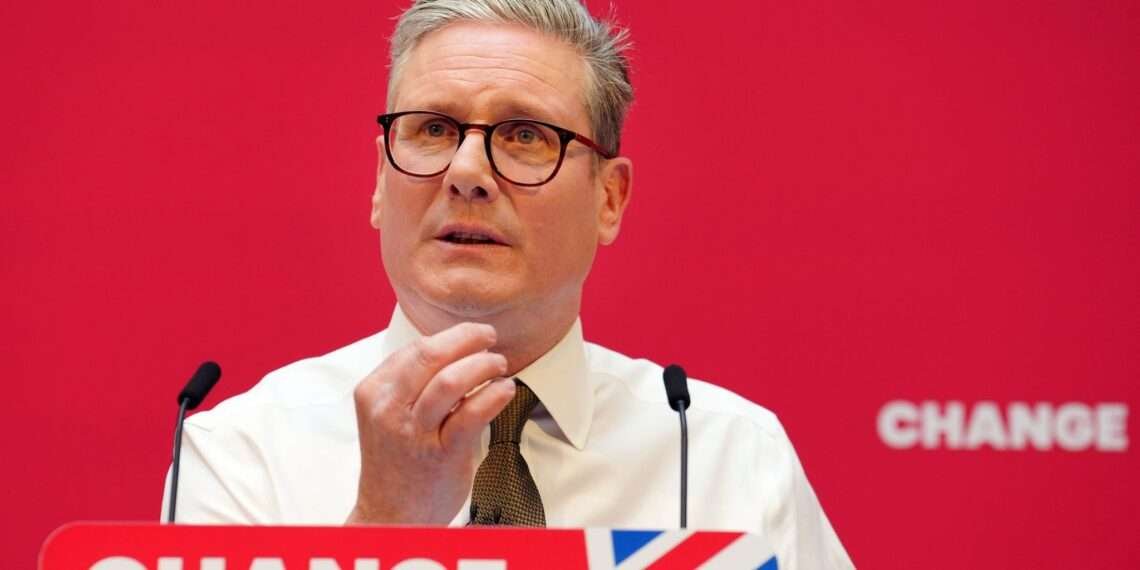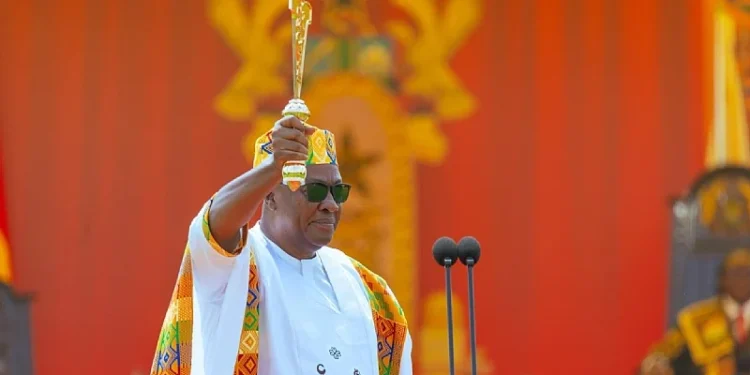Labour leader Sir Keir Starmer launched his party’s manifesto with aims to “turbocharge” the nation and planned to raise £8.6 billion in new taxes.
Emphasizing a transformative shift within his party and the need for a break from “Tory chaos,” Starmer’s program for government adopts several traditional Conservative policies.
This alignment was particularly evident when he addressed a heckler early in his speech, stating, “We gave up being a party of protest five years ago, we want to be a party of power.”
Labour’s manifesto, heavily featuring images of Starmer in a presidential-style campaign, comes as he leads the polls by approximately 20 points ahead of Rishi Sunak’s Conservatives.
Despite this lead, many undecided voters and disenchanted Conservatives remain unconvinced.
Facing persistent claims that his plans will increase taxes, Starmer could not definitively deny potential hikes in levies such as council tax or capital gains tax.
The manifesto addresses these concerns with a detailed costings page outlining the funding of Labour’s policies through new taxes totaling £8.6 billion.
This includes £5.23 billion from closing non-dom loopholes and tackling tax avoidance, £1.51 billion from adding VAT to private school fees, £565 million from closing the carried interest loophole, and £40 million from increasing stamp duty for non-UK residents purchasing UK properties.
Additionally, a £1.2 billion windfall tax on energy companies is proposed.
When questioned if his manifesto was overly cautious and about his previous U-turns on left-wing policies and support for Jeremy Corbyn, Starmer defended his vision as “a serious plan.” He pledged to lead a “pro-business, pro-worker” government focused on “wealth creation.”
The manifesto, rooted in Starmer’s five missions, builds on the six “first steps” he presented to voters last month.
The launch at the Co-op headquarters in Manchester symbolized Labour’s goal of merging business-friendly policies with workers’ rights, reminiscent of the Cooperative Movement’s ideals.
“The Co-op is an organization that, like us, believes that the pursuit of social justice and economic growth must go hand in hand.”
Keir Starmer
Starmer vowed that his government would “not play fast and loose with the country’s finances,” committing to “sound money” and contrasting this with Liz Truss’s mini-budget, which he claimed hindered people from securing mortgages.
Addressing tax concerns directly, Starmer asserted, “I do not think that it is fair to raise the taxes of working people in a cost of living crisis.”
He made a manifesto commitment not to raise major taxes — VAT, income tax, and national insurance — although he did not mention council and capital gains tax.
Deputy leader Angela Rayner introduced Starmer, praising the manifesto for “offering change.”
Support For Starmer’s Policy Plan
Richard Walker, the Iceland boss who defected from the Conservatives to Labour last year, also said, “Only Labour can change this country’s trajectory from dismal economic performance.”

He supported Labour’s pro-growth, business-friendly plans, saying they could “turbocharge the country.”
Nathaniel, a music teacher with cancer, also shared his story, highlighting the need for NHS reform and criticizing Rishi Sunak’s government for failing to reduce waiting lists.
He lamented that instead of “inspiring young rockstars for decades to come,” he faced a terminal diagnosis due to delayed treatment.
The audience heard from various individuals, including a father struggling to get on the property ladder and Holly, an 18-year-old first-time voter, showcasing the diverse group Labour aims to support.
Starmer concluded, “Growth is our main mission. Nothing can be achieved without growth.” He reaffirmed, “We are the party of wealth creation.”
READ ALSO: Rita Edochie Lambasts Yvonne Jegede for Defending Yul Edochie























